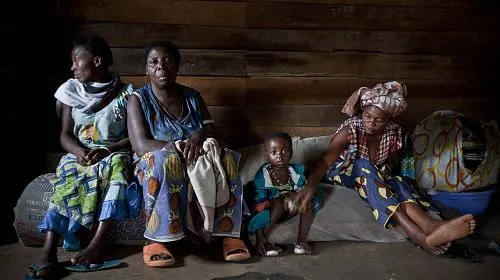KAMPALA, Uganda (March 5, 2018) — Thousands of Congolese seeking refuge at settlements in southwestern Uganda are at risk of contracting cholera, warns the humanitarian aid organization CARE.
According to the Ugandan Ministry of Health, 34 people have died and 1,257 cases have been confirmed. Cholera, an acute infectious disease, is spread through eating contaminated food and drinking contaminated water. If not treated, it can quickly prove fatal.
The outbreak has been declared in a number of sites including the refugee settlement of Kyangwali, home to thousands of Congolese who have fled fighting in the Democratic Republic of Congo (DRC) in recent weeks.
CARE is working in Kyangwali, providing assistance to survivors of sexual and gender-based violence. Most of the refugees crossing into Uganda from DRC are women and girls, and many have experienced one or more forms of gender-based violence during their flight to Uganda.
“This outbreak has come at a particularly bad time,” Delphine Pinault, country director for CARE Uganda. “People are exhausted, especially women and girls who have already suffered so much trauma. In addition to the worrying health implications, families face further dislocation should this outbreak spread further. They face losing their loved ones, parents and caregivers, and will become even more isolated and more vulnerable if we don’t act quickly.
“We’ve seen waves of refugees arriving in the thousands in the last few weeks. The needs are overwhelming as we simply don’t have the resources to meet them. We urgently need more funds if we don’t want to lose more lives,” said Pinault.
According to the UNHCR, more than 45, 000 refugees from DRC have arrived in Uganda since Jan. 1.
About CARE
Founded in 1945 with the creation of the CARE Package®, CARE is a leading humanitarian organization fighting global poverty. CARE places special focus on working alongside women and girls because, equipped with the proper resources, they have the power to lift whole families and entire communities out of poverty. That’s why women and girls are at the heart of CARE’s community-based efforts to improve education and health, create economic opportunity, respond to emergencies and confront hunger. Last year CARE worked in 93 countries and reached 63 million people around the world. Learn more at care.org.
Media Contact
Nicole Harris, nharris@care.org, 404-735-0871

